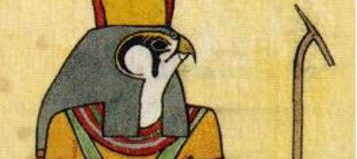This is the first of a series of key concepts in Platonic philosophy, part of a work-in-progress glossary of theurgic Neoplatonism.
Participation (μέθεξις, μετέχειν, μεταλαμβάνειν, μετουσία, μετοχή) in Platonic philosophy characterizes how particular things relate to universals. Aristotle (Metaphysics 987b) writes that Plato adapted the idea of participation from the Pythagoreans: “The Pythagoreans say that things exist by imitation (μίμησις) of numbers, and Plato says they exist by participation (μέθεξις) [in Forms].” The multitude of sensible things having the same name as their Form exist by participating in that Form. For example, in Plato’s Phaedo 100c, Socrates characterizes beautiful things as participating in the Form of Beauty: “If there is anything beautiful besides the Beautiful itself, it is beautiful for no other reason than that it participates (μετέχειν) in that Beautiful.” Plato’s Parmenides 132d also states that instances participate (μετέχειν) in their Forms (τὰ εἴδη) or paradigms (παραδείγματα). This participation is characterized by particulars that “resemble” (ἐοικέναι) and are “likenesses” (ὁμοιώματα) of their universals.
For the theurgic Neoplatonists, participation is the relationship by which lower entities receive causes from higher entities in a continuous ontological hierarchy, and is closely related to Reversion, which is one of three moments in a continuous ontological process: Remaining (μονή), Procession (πρόοδος), and Reversion (ἐπιστροφή).
Iamblichus states that the gods “contain everything within themselves; and earthly things, possessing their being in the totalities (πληρώμασι) of the gods, whenever they come to be adapted (ἐπιτήδεια) for participation (μετοχή) in the divine, straight away find the gods preexisting in it prior to their own proper essence” (DM 1.8.28.13-29.3). Theurgy provides the means to produce this fitness/adaptation (ἐπιτηδειότης: 1000) for participation in the divine, through the use of proper ritual tokens/signatures (σύμβολα, συνθήματα). Additional terms coming soon…
